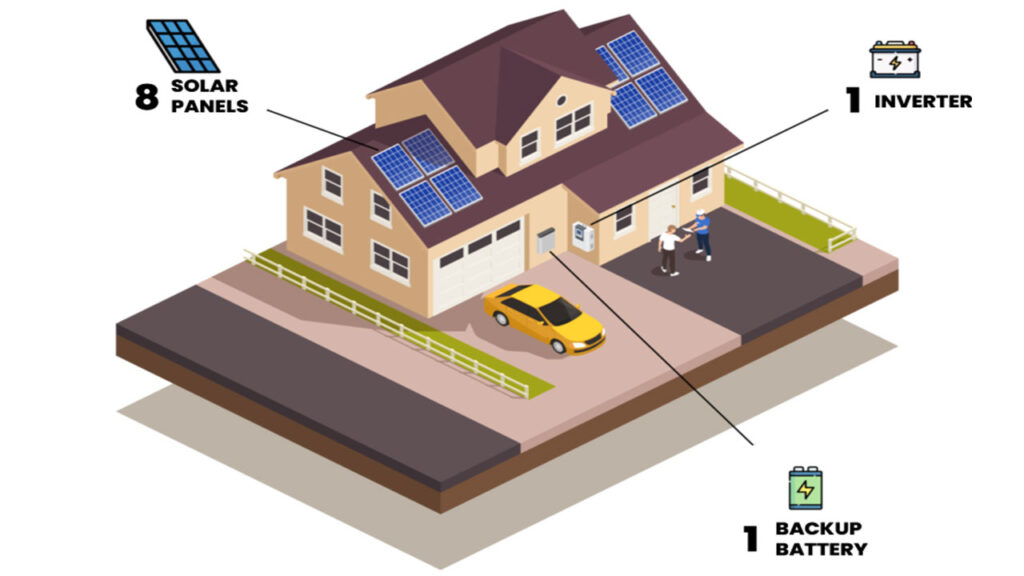Using Green Energy in Arab Countries in 2050
- Hossein_barati
- Uncategorized

Using Green Energy in Arab Countries, Arab countries, known for their vast desert landscapes and ample sunlight, possess great potential for solar energy.
Using Green Energy in Arab Countries
In the wake of growing concerns about climate change and the need for sustainable energy solutions, Arab countries are increasingly turning to green energy alternatives. This article explores the advancements and adoption of green energy initiatives in Arab countries, highlighting the benefits and challenges associated with this transition.

Importance of Green Energy in Arab Countries
Arab countries, known for their vast desert landscapes and ample sunlight, possess great potential for solar energy. Governments and private entities in these countries are investing in large-scale solar power projects that not only reduce carbon emissions but also provide a sustainable source of electricity for their growing populations.
Additionally, incorporating wind energy is becoming a priority in Arab countries. With a significant coastline, these countries have access to strong and consistent sea breezes that can be harnessed to generate clean and renewable energy. By embracing green energy, Arab countries can reduce their reliance on fossil fuels, decrease greenhouse gas emissions, and create a more sustainable future for their citizens.
Current Energy Landscape in Arab Countries
The current energy landscape in Arab countries is predominantly reliant on fossil fuels, primarily oil and gas. While this has been a significant source of revenue for these countries, it has also contributed to environmental degradation and climate change. Recognizing the need for a shift towards greener alternatives, Arab countries are now actively exploring and implementing renewable energy sources.
However, the transition to green energy is not without its challenges. Arab countries face unique obstacles, including political and economic factors, as well as the need for infrastructure development and technological advancements. Overcoming these challenges requires a coordinated effort from governments, private sectors, and international collaborations.
Challenges in Implementing Green Energy in Arab Countries
Implementing green energy in Arab countries is not without its challenges. One of the primary obstacles is the geopolitical landscape of the region. Political tensions and conflicts can hinder the progress of green energy initiatives. Additionally, the economic dependence on fossil fuel exports poses a challenge to the transition. Arab countries need to diversify their economies and find alternative sources of revenue to support the development of green energy projects.
Infrastructure development is another significant challenge. The integration of renewable energy sources into existing grids requires substantial investments in transmission and distribution networks. Moreover, technological advancements are crucial to maximize the efficiency of green energy systems and ensure their reliability.
Government Initiatives and Policies Promoting Green Energy
Arab countries are taking proactive measures to promote and support the adoption of green energy. Governments have introduced various initiatives and policies to incentivize renewable energy projects. These include feed-in tariffs, tax incentives, and favorable regulatory frameworks. By offering financial and regulatory support, governments are encouraging private investments in renewable energy and fostering a conducive environment for the growth of the green energy sector.
Success Stories of Green Energy Projects in Arab Countries
Despite the challenges, Arab countries have witnessed successful green energy projects. The United Arab Emirates (UAE), for example, has made significant progress in solar energy. The country is home to the world’s largest single-site solar park, the Mohammed bin Rashid Al Maktoum Solar Park. The park has a capacity of 5,000 megawatts and contributes to the UAE’s goal of generating 50% of its energy from renewable sources by 2050.
Morocco is another Arab country that has made remarkable strides in green energy. The country’s Noor Ouarzazate Solar Complex is one of the largest concentrated solar power (CSP) plants in the world. It provides clean energy to over a million people and has reduced carbon emissions by thousands of tons.
These success stories serve as inspiration for other Arab countries, demonstrating the feasibility and benefits of green energy projects.
Benefits of Using Green Energy in Arab Countries
The adoption of green energy in Arab countries offers numerous benefits. Firstly, it reduces the dependence on finite fossil fuel resources, ensuring a more sustainable and secure energy future. Secondly, green energy sources are cleaner and produce fewer greenhouse gas emissions, helping to mitigate climate change. Additionally, the development of green energy projects creates job opportunities and contributes to economic diversification.
Moreover, green energy projects can improve energy access in remote areas, where traditional grid connections may not be feasible. Solar panels and wind turbines can provide electricity to communities that were previously underserved, improving their quality of life and promoting social development.
Technologies and Solutions for Green Energy in Arab Countries
Various technologies and solutions are being explored and implemented in Arab countries to harness green energy. Solar photovoltaic (PV) panels, concentrated solar power (CSP) systems, and wind turbines are among the primary technologies used. Advances in energy storage systems, such as batteries, are also crucial for ensuring a stable and reliable supply of green energy.
Furthermore, research and development efforts are focused on improving the efficiency and cost-effectiveness of green energy technologies. Innovation in areas such as solar panel design, wind turbine technology, and energy management systems is essential for the widespread adoption of green energy in Arab countries.
Steps to Transition to Green Energy in Arab Countries
A successful transition to green energy requires a comprehensive and strategic approach. Arab countries can take several steps to facilitate this transition. Firstly, they can establish clear renewable energy targets and develop long-term plans to achieve them. These targets should be ambitious yet realistic, taking into consideration the unique challenges and opportunities of each country.
Additionally, fostering partnerships and collaborations with international organizations and experienced renewable energy companies can provide valuable expertise and financial support. Knowledge sharing and capacity building initiatives can accelerate the adoption of green energy technologies and best practices.
Investments in research and development are also crucial. Governments and private sectors should allocate funding for innovation and technology advancements in the green energy sector. This will drive progress and unlock new opportunities for Arab countries in the field of renewable energy.

Conclusion: The Future of Using Green Energy in Arab Countries
The future of Using Green Energy in Arab Countries is promising. The advancements and adoption of renewable energy sources demonstrate a commitment to sustainability and a desire to mitigate climate change. Despite the challenges, Arab countries have made significant progress in embracing green energy, as evidenced by successful projects and supportive government policies.
By continuing to invest in green energy initiatives, Arab countries can lead the way in sustainable development and serve as role models for other nations. The transition to green energy will not only reduce carbon emissions and mitigate climate change but also create new economic opportunities and improve the quality of life for their citizens.
Set up solar power station with Tabdil Energy Roshana equipment
Tabdil Energy Roshana is a company that can help you to easily set up solar power stations in your house, office and your company. This company also sells the Polycrystalline solar panel and Monocrystalline solar panel to Use clean solar energy.
Introducing Tabdil Energy Roshana
Tabdil Energy Roshana Group is trying to easily meet the needs of factories and homes by using clean solar energy. The use green solar energy as a renewable solar energy has been done in developed countries for years.
The purpose of our activity in this company is to promote the use of clean and renewable energy from the sun in domestic and power plant dimensions. In 1401 AH, the experienced and young team of Tabdil Energy succeeded in receiving a knowledge-based certificate from the Vice President for Research.

The main activities of Tabdil Energy Roshana company
One of the most important activities of this group is set up solar power station, installing a solar panel, setting up a photovoltaic power plant, installing a Solar energy inverter, installing a solar battery, setting up an On grid solar power plant or Off grid solar system, installing and setting up home solar electricity to Use reproducible energy or Use green energy or Use photovoltaic technology or Use solar UPS . You can easily refer to the products page of this collection and get to know our services and products well.
The use of solar energy, in addition to the beneficial environmental effects, can be a long-term investment with a very good profit. Tabdil Energy consultants are by your side to guide you by providing expert advice on setting up a home solar site, solar power plant, and also the benefits of investing in this field.



